News & Media
Escalating digital transformation to ensure competitive African education systems
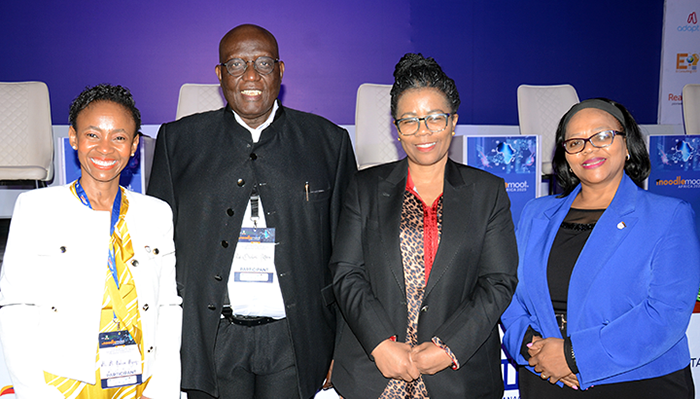
From left: Mathabo Nakene-Mginqi (Chief Information Officer / Vice-Principal: Information & Communication Technology, Unisa), Prof Olufemi Peters (Vice-Chancellor: NOUN), Prof Puleng LenkaBula (Unisa Principal and Vice-Chancellor) and Dr Matsheliso Molapo (Acting Vice Principal: Strategy, Risk and Advisory Services, Unisa)
Unisa, in collaboration with other institutions of higher learning on the African continent, recently co-hosted the MoodleMoot Africa Conference, themed "Leveraging the power of disruptive technologies for Africa’s educational transformation". Held from 8 to 10 October 2025, at the National Open University of Nigeria (NOUN), the conference provided a timely platform for the Pan-African education community to share experiences, showcase innovations and develop strategies for harnessing disruptive technologies, anchored by Moodle to transform higher education.
Watch the conference highlights
The subthemes that were tackled at the conference focused on "Inclusive access and student success with Moodle", "Empowering skills development and innovative pedagogies with Moodle", and "Building sustainable and innovative Moodle ecosystems".
Nigeria’s Minister of Education, Dr Maruf Tunji Alausa, officially opened the conference, urging participants to learn, engage and collaborate through African facilitation of developers and users. Alausa further emphasised: "Data is everything, it is the cost enabler of everything we do." He also called for moving from dialogue to scalability, and for globally competitive yet locally relevant education systems to the benefit of students.
Alausa stated that Africa is ready to advance in technology, emphasising that Moodle is an open-source, flexible and customisable platform. Additionally, he advocated for an open resource policy, stressing that African transformation cannot be achieved in silos.
Reflecting on the challenges of Africa’s education systems, the Honourable Lindi Mminele, Minister Plenipotentiary at the South African High Commission to Nigeria, asserted: "Africa cannot be left behind. Digital transformation has become imperative to learners and educators."
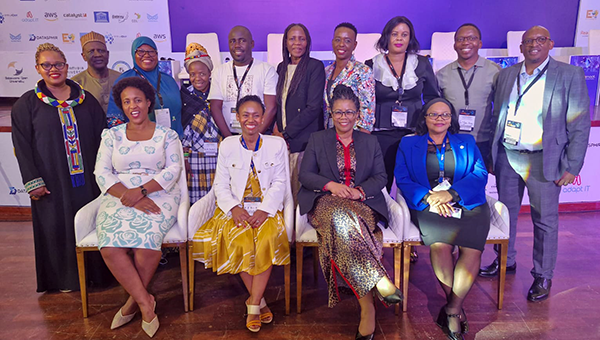
Unisa and NOUN representatives
Mathabo Nakene-Mginqi, Unisa’s Chief Information Officer and Vice-Principal of Information and Communication Technology, delivered a keynote address titled "Disruptive technologies: Transforming Africa's education system for sustainable development". Nakene-Mginqi noted several key points, including Unisa's Moodle stability rate of 97%.
"Universities need to tackle global competitiveness, establish centres of excellence in research and innovation, address youth unemployment, secure adequate funding in cooperation with qualifications authorities, and adopt common standards," added Nakene-Mginqi. "When activities are configured using software, universities can respond to students’ needs in real time, facilitating interaction among students and academics, as well as between them." Regarding digital transformation, she further challenged African universities to rethink their identities and digital strategies in the era of intelligent platforms.
Unisa’s Principal and Vice-Chancellor (VC), Prof Puleng LenkaBula, presented a lead paper titled "Breaking barriers: Access and equity in African education", posing the question of how access is conceptualised in African universities. LenkaBula pointed out that MoodleMoot represents an open-source technological advancement in Africa and promotes educational growth. She also encouraged the expansion of educational horizons and redefining Africa's trajectories, suggesting that Moodle should be adopted as a primary platform, as Unisa serves 40% of the nation’s students.
"Additionally," said the VC, "we need to develop robust artificial intelligence (AI) frameworks and teach students how to use AI ethically and responsibly, which would enhance their critical thinking without compromising integrity." LenkaBula also affirmed that education must not be for the elites but for all. Calling for digital inclusion, the VC further urged African universities to leverage AI and machine learning for sustainable education.
The conference reaffirmed that Africa’s educational transformation depends on partnership, innovation and commitment to equitable access for students from diverse backgrounds.
* By Nancy Legodi, Acting Senior Journalist, Department of Institutional Advancement
Publish date: 2025-10-21 00:00:00.0


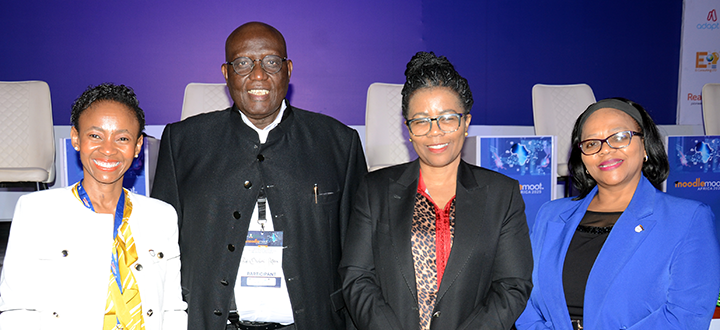 Escalating digital transformation to ensure competitive African education systems
Escalating digital transformation to ensure competitive African education systems
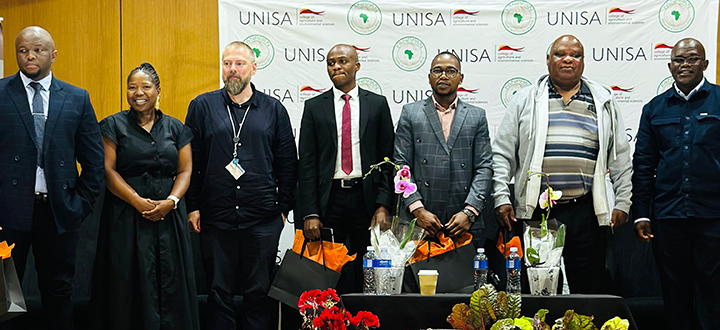 Unisa hosts G20 Food Security Roundtable
Unisa hosts G20 Food Security Roundtable
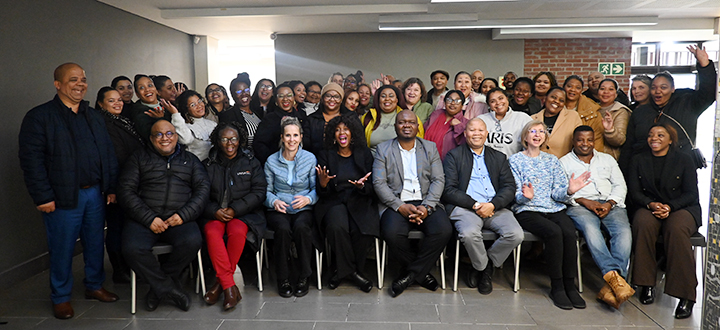 Unisa trains social work professionals to strengthen partnerships
Unisa trains social work professionals to strengthen partnerships
 Unisa partners with tech entities to enhance Africa's digital future
Unisa partners with tech entities to enhance Africa's digital future
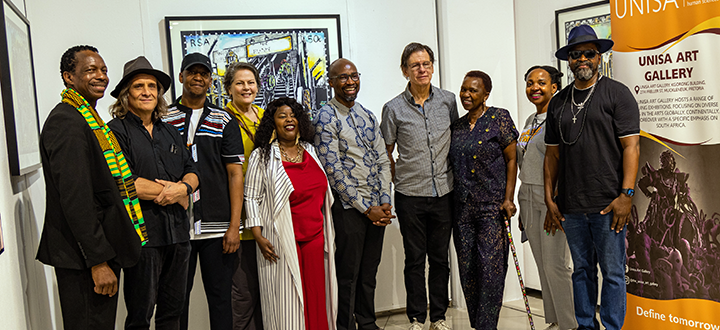 Interrogating the boundaries of knowledge through art
Interrogating the boundaries of knowledge through art